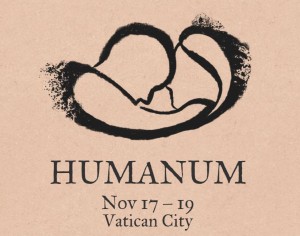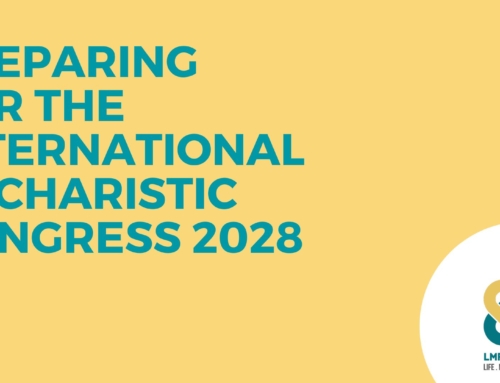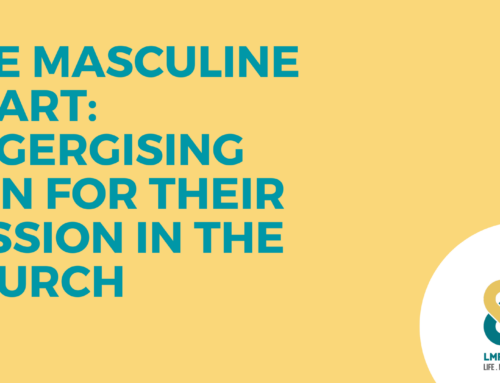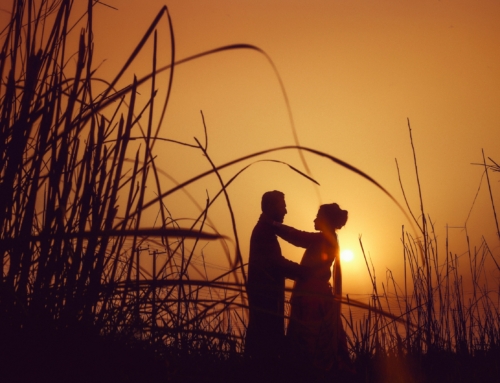Last week, scholars and leaders from diverse religious and cultural backgrounds gathered in Rome for the Humanum conference – a symposium on the complementarity of man and woman. Six videos were made featuring the speakers, and each presenters talk is now available on the Humanum website. At the conclusion of the conference, the following statement was made.
Why do weddings still move us? We do not become emotional when business partners strike a deal. We shed no tears at a friendly handshake. We feel no such joy to hear of “casual” mating.
A wedding is different. Here stand a man and woman, entering together into a new life.
And yet it is more than this. They are about to enter the generations. Their union proclaims life: their parents and grandparents still live within them. Humankind lives within them. The cultures and creeds of the world live within them. They are there—in the blood. Those bearing witness know this truth. They too have been born from a union of man and woman.
See the grandmother who looks on, now frail. She was once that bride, and the memory of her own mother and father dwells within her still.
See the brother who welcomes guests—he will one day be that bridegroom, and he too will enter in a new way the long history into which he was born.
See their friends and neighbors. They are more essential than any might guess. For it is they who will help make this marriage flourish. Their investment will return to them, for marriage is a cup that runs over.
See the mother of the bridegroom, hugging her son amid smiles and tears. He was once a helpless baby whom she nursed at the breast. Now he stands tall above her, and his voice is deep, and his shoulders broad. She remembers his birth. He who was once her child will one day be a father.
See the father of the bride, holding her by the hand. He recalls when her mother bore her, and he envisions in her what is so hard to believe the mother-to-be. She is the bearer of a future. She is irreplaceable.
See man and woman together. They are not just two people. He is for her, and she for him; it is inscribed in their bodies. Their union will bring life that binds and mingles families, encourages faith to flourish, and brings humankind and the world’s diverse cultures to flower again.
Both are eager to undertake their new responsibilities—their gift of self to the other—and think little about what is owed them. They know nothing yet of the difficulty of the years ahead, only of their desire to travel it together.
It is hard now to speak of such obvious and beautiful things, but they are there. All the witnesses know it. It is the music of man and of woman. Man with woman brings out the finest in him, directing his blood and his mind toward what makes life possible; and woman with man brings out the finest in her, directing her love and her care toward what makes life sweet.
Today, however, the homes that marriage makes are exposed to an army of distractions, and to the thief and the enemy who comes to steal and destroy. Weddings are rarer and children fewer. Where poverty erodes, marriage feels out of reach. Where war afflicts, families are crushed. Anywhere marriage recedes, we lose the transcendent and material goods that all human beings should enjoy.
And we too are at fault, for when marriages are exposed to the wind and the rain, we have paid little attention. When the needs of children succumb to the wishes of adults, we have often remained silent. Love is reduced to a consumer item, an airbrushed image, or a slogan to export. It will not work. We will not flourish.
For marriage is no mere symbol of achievement, but the very foundation—a base from which to build a family and from there a community. For on earth marriage binds us across the ages in the flesh, across families in the flesh, and across the fearful and wonderful divide of man and woman, in the flesh. This is not ours to alter. It is ours, however, to encourage and celebrate.
And so it is that we rejoice at weddings. This we affirm.
For more, visit Humanum





